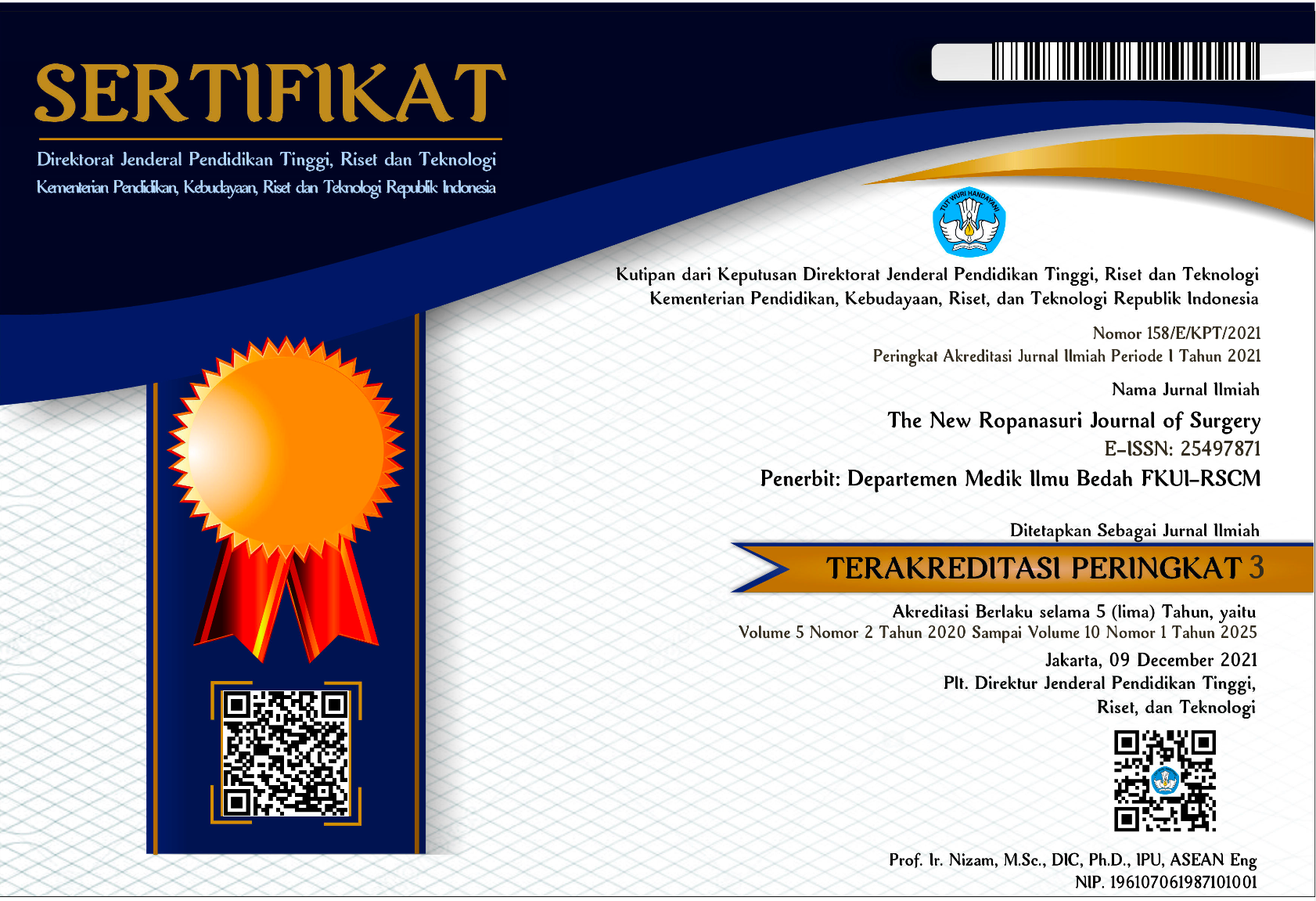Abstract
Introduction. Intestinal obstruction has been shown to induce bacterial translocation and in turn, would be associated with an increased risk of sepsis. Such a condition would be affecting the achievement of peristaltic and ultimately increased morbidity and mortality. In addition, nosocomial infections that threaten neonates cause sepsis also will affect the achievement of a peristaltic. Thus, the aim of this study was to investigate the relationship between sepsis with timing achievement of peristaltic postoperatively. Method. This is a cross-sectional study with data obtained from medical records of patients with duodenal obstruction without congenital abnormalities (gastroschisis, omphalocele, and another intestinal atresia) that underwent operations in RSCM during the period of January 2010 to July 2016. Subjects were grouped into sepsis and without sepsis. The association between sepsis and timing achievement of peristaltic, and confounding variables (gestational age, birth weight, congenital abnormalities, conditions of hypoxia and electrolyte imbalance) were analyzed. Data analyzed using univariate, bivariate (Mann Whitney, Chi-Square or Fischer) and multivariate (linear regression) with the significance of
Recommended Citation
Sastiono, Sastiono and Rahmaania, Juwita Cresti
(2019)
"Relationship between sepsis and timing achievement of peristaltic function in congenital duodenal obstruction,"
The New Ropanasuri Journal of Surgery: Vol. 4:
No.
1, Article 6.
DOI: 10.7454/nrjs.v4i1.73
Available at:
https://scholarhub.ui.ac.id/nrjs/vol4/iss1/6













